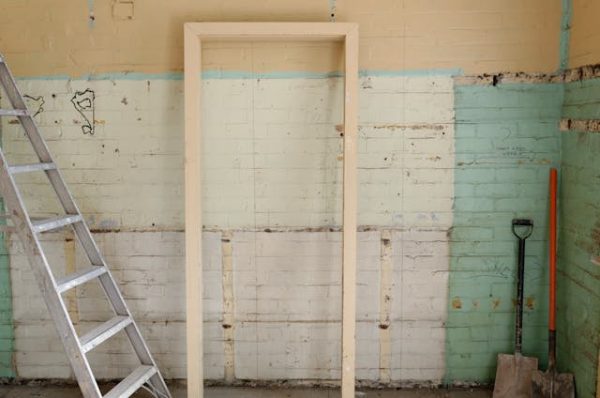
Starting a major renovation can be exciting. Whether you’re expanding your kitchen, upgrading a bathroom, or giving your entire home a new look, the end result is something to look forward to. But before the first hammer swings, there’s work to do. Preparing your home properly can save you time, money, and stress during construction.
Homeowners in the middle of a big project often forget how disruptive renovations can be. Dust, noise, and clutter are just a few of the issues that come with it. You’ll need a solid plan for protecting your furniture, organizing your living space, and staying on track with the construction timeline.
This article offers simple, clear steps to help you get ready before work begins. Whether you’re doing a full home remodel or a large single-room update, these tips can help you stay organized and keep your home safe.
Clear the Work Areas in Advance
The first thing to do before a renovation is to clear the space. Any room being worked on should be empty of furniture, electronics, rugs, and decor. This protects your belongings and makes the job easier for contractors. Leaving items in the space can slow progress and create risks for damage.
It’s tempting to move items into a nearby room or hallway, but this can make the rest of your home feel crowded. If your renovation covers more than one area, or if you have large or delicate items, it may be better to move them off-site or store them safely for the duration of the work.
In these situations, hiring professionals can be helpful. One option to consider is Solomon & Sons Relocation Services, which offers tailored moving and storage solutions for homeowners. They understand how to handle furniture and valuables with care during renovations. For full-service packing, transport, and re-delivery, their white glove option is worth a look: https://www.ssrelocation.com/white-glove/.
Removing items the right way helps create a clean workspace and lowers the chance of damage. It also gives your contractor the room they need to work efficiently. If you take this step before demolition begins, you’ll feel more in control from day one.
Protect the Rest of Your Home
Even if your renovation is limited to one or two rooms, dust and debris can travel quickly. Without the right precautions, nearby areas can end up dirty or damaged. One smart step is to block off work zones with plastic sheeting or zippered barriers. These help contain mess and make cleanup easier.
Cover the floors in hallways and shared spaces with protective mats, cardboard, or even thick drop cloths. Contractors and workers often move between the worksite and other areas, so having a path in place protects your surfaces from scratches, dirt, or spills.
Don’t forget about vents and air returns. If dust gets into your HVAC system, it can spread throughout the house. Close off vents in construction zones and cover them with tape or filters when possible. After work is done, replace the air filters to improve indoor air quality.
You can also store smaller valuables, fragile items, or electronics away from active spaces. Even a covered shelf in a closet is better than leaving something out in the open. Taking a few minutes to protect your home now can save you the headache of dealing with unexpected damage later.
Set Up a Temporary Living Area
Living through a renovation means dealing with noise, clutter, and limited access to parts of your home. One way to stay comfortable is to set up a temporary living zone away from the worksite. This gives you and your family a break from the daily disruption.
If your kitchen is being remodeled, set up a mini version somewhere else in the house. A small table with a microwave, toaster oven, and mini fridge can help you get through the weeks without a full kitchen. Stock up on disposable plates and utensils to keep things simple.
Bathroom work can be more challenging. Try to schedule bathroom remodels so one full bath stays functional. If that’s not possible, talk with your contractor about setting up short-term solutions, such as portable options or shared access to a second location.
Make sure you keep daily items, such as phone chargers, medication, or work supplies, in your temporary zone. This helps limit trips into construction areas and keeps your routine from falling apart. Staying organized during the renovation will help reduce stress and make the space feel more livable.
Communicate Clearly with Your Contractor
Good communication with your contractor makes everything smoother. Before work starts, talk about the timeline, work hours, and how often you’ll get updates. Be honest about what parts of the house you want left alone and which areas can be used for staging materials or tools.
You can use a shared calendar or even a whiteboard in the entryway to keep track of progress. If you’re not home during the day, ask for daily check-ins by text or email. When surprises come up, as they often do in renovations, it helps to have a direct way to reach your contractor quickly.
Being clear from the start builds trust and helps avoid confusion. It also keeps the project moving forward with fewer delays or last-minute changes.
Getting ready for a renovation takes more than picking out materials or hiring a contractor. With the right steps—clearing the space, protecting your home, staying organized, and setting expectations—you’ll have a smoother experience from start to finish. A little preparation now can help you enjoy the results without added stress.
Taking control of the prep work also helps you avoid delays, protect your investment, and keep your living space functional during construction. Whether you’re working with professionals or managing parts of the project yourself, planning ahead sets the tone for a more successful outcome.

